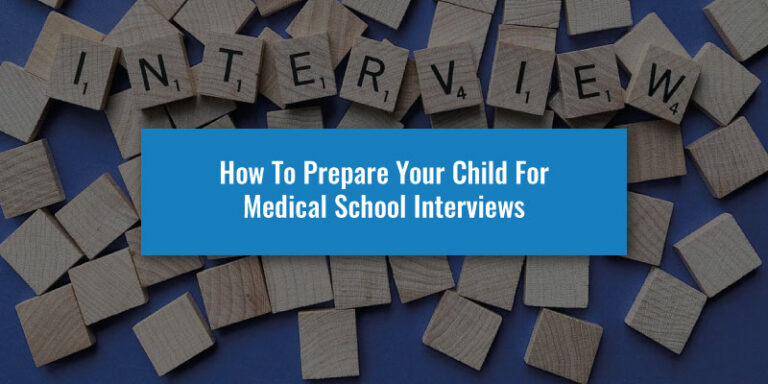With applications to medical school becoming more and more competitive, it’s important to do everything you can to make your application strong.
With each passing year, it becomes less impressive to just read books and attend work placements, as these things become more and more mandatory for applicants to complete (work experience is already a requirement!). Plus, with acceptance rates at some of the top medical schools becoming lower and lower – like Oxford, Cambridge and Imperial College London – it’s never been more important to do things that will help set you apart from the competition.
So, in this guide, we’re going to look at more exciting and unique ways that you can boost your medicine application, become a more well-rounded applicant and secure your place at the medical school of your choice.
Why Boosting Your Medical School Application Is Important
We’re all guilty of signing up to things just so that we can put it on our applications. At my sixth form, there was a phase during the year where teachers would use the line ‘…and it’ll look great on your UCAS application‘ for just about anything they wanted us to do!
However, there are important reasons why we do this beyond that:
These experiences teach us new skills that can only be taught in practical environments. These skills are essential for being a good doctor, even if it can sometimes be challenging.
They let us interact with new people, including people already working in the field of medicine, and allow us to understand different ways of thinking, especially within a professional environment.
If you’re taking these things on because you actually want to, then it authentically demonstrates your dedication to the field and your determination to get your offer. It shows that you will work hard if you’re admitted, which is one of the most important things that medicine admissions tutors look for.
Of course, the first thing that comes to mind is work experience and/or volunteering of some sort. Ideally, you want some experience in a hospital and/or GP setting. However, this can be quite difficult to find, especially in hospital-based experience.
On the other hand, volunteering, for example at a nursing/care home, a homeless shelter or a children’s/special needs centre is far easier to organise and can be done regularly over a longer period of time showing commitment. Look out for suitable places in your local area and on your local council website.
But apart from work experience and volunteering, there’s a whole bunch of additional things you can do to further boost your application and potentially provide great topics of discussion for interviews (and of course, these will be rewarding for you too and allow you to develop and improve important skills!)
UniAdmissions is the world’s first Oxbridge preparatory school, getting students into Oxbridge for over ten years.
The most effective way to prepare and practice for your Oxbridge medicine application is to engage with our expertly designed Oxbridge Programmes. You’ll have access to expert tutors, live intensive courses, a large library of resources and much more – everything you’ll need to become the perfect Oxbridge applicant.
Discover our Oxbridge Medicine Programmes below and find out how you can enrol and triple your chances of success.
Medical Ethics Discussion Club
Ethics in medicine is one of the most complicated but most important topics to study for your application. Medics are regularly tasked with making life-altering decisions that have no objectively correct solution, so being aware of the challenges and appropriate mindset for this is vital for your application.
To help you with this and demonstrate your initiative and leadership, consider starting a medical ethics discussion club, either at your school or during your personal time. It can be a great opportunity to connect with like-minded peers, learn new perspectives on difficult topics and sharpen your verbal reasoning skills, which will be essential for your interviews.
The club can be as simple as a handful of friends getting together once a fortnight at lunch to discuss an interesting topic. You can alternate who runs the session and keep it interactive. Start small, and you may even find others interested in attending!
Topics that might facilitate interesting discussions could range from fertility treatment to barriers to organ donation. And, of course, look out for current issues in the news that you could discuss. As well as being something interesting for your application, you’ll find yourself more knowledgeable on potential interview topics and better able to think on the spot.

Journal Club
You’ll notice a theme in these tips for starting clubs or initiatives. This is because showing the dedication and organisational skills to start something like this is a really great way of boosting your application. You likely won’t be able to action all of these, so choose the ones that seem the most appealing to you and consider what you can realistically achieve alongside your UCAT preparation, Personal Statement writing and regular school work (as well as keeping some time to relax).
A journal club is another opportunity to bring students together for an activity that is relevant to your application. As well as this, it will help encourage you to expand your wider reading and discover journals and papers that most applicants wouldn’t have read. This will help you stand out, and you’ll learn plenty of useful information.
Again, it doesn’t have to be on a large scale. Take it in turn to present a paper going through the main findings and critically evaluating how the study was carried out. Choose papers from journals that are easier to understand such as the Student BMJ. Being able to read and critique studies is a great skill to start to familiarise yourself with.
Mentor/Buddy Scheme
This one isn’t specifically related to medicine, but not all of your super-curricular activities need to be. It’s also important to demonstrate your general skills and show that you care about things outside of your primary studies, so positively contributing to your school is a great way of doing so.
The foundations of setting up a mentor or buddy scheme are already created, so all you need to do is implement it in your own environment. Get students in your year to sign up, then pair them up with younger students at your school. At my school, two sixth formers were assigned to each Year 8 form, who we would spend half an hour with each week.
If something like this is already in place at your school, sign up for it and offer to help organise it if needed. If you see opportunities to improve the system, be sure to express your thoughts.

Fundraising
Fundraising is probably one of the most enjoyable activities to get involved in during the stresses of sixth form! Charities such as Wings of Hope even run specific student projects where you can get involved in fundraising competitions.
How you go about this can be down to you. Perhaps there is already a fundraising campaign that you can help with, or you could look at starting a new one. Either way, it’s a great way to demonstrate your skills while showing you can empathise with others.

Assemblies and presentations
Lastly, you could consider leading an assembly or presentation for your school. The subject of this assembly could be related to something in healthcare or anything you feel would be beneficial for your peers.
Either way, leading an assembly is a great way of demonstrating your communication skills, another essential skill for doctors. Being able to effectively explain potentially complex information to those less informed than you is something medics will do every day of their careers. Plus, being able to get your audience emotionally involved is a great skill to have when helping lead patients to the best outcome.
I hope you’ve taken something away from this guide and that you’ll be able to action at least one of these tips to help boost your application. Remember that you’re not just doing it for your UCAS application! Such activities will definitely be useful in terms of the skills you develop (and maybe even a bit of fun!).
Also, this list isn’t exhaustive, so you can action any other ideas you have as well. Only take on what is realistic for you and your environment, as long as you’re trying your best in these endeavours, that dedication will show through in your interview and Personal Statement (just be sure to communicate it effectively).
If you’re looking for comprehensive support with the other aspects of your medical school application, including the Personal Statement, UCAT and Interviews, discover UniAdmissions’ dedicated Medicine Programme, which combines tuition, live courses, extensive resources and much more into one essential package. If you’re applying to Oxford or Cambridge, our Oxbridge Medicine Programme is perfect for helping you stand out from the competition.
Get into medical school with comprehensive support from UniAdmissions
UniAdmissions has supported Oxbridge applicants for over 10 years, and it all started with medicine. We’ve developed a comprehensive curriculum that covers everything from the UCAT to the interviews. Our guidance will give you the best chance of getting your offer!
Discover our Oxbridge Medicine Programmes below and find out how you can enrol and triple your chances of success.








